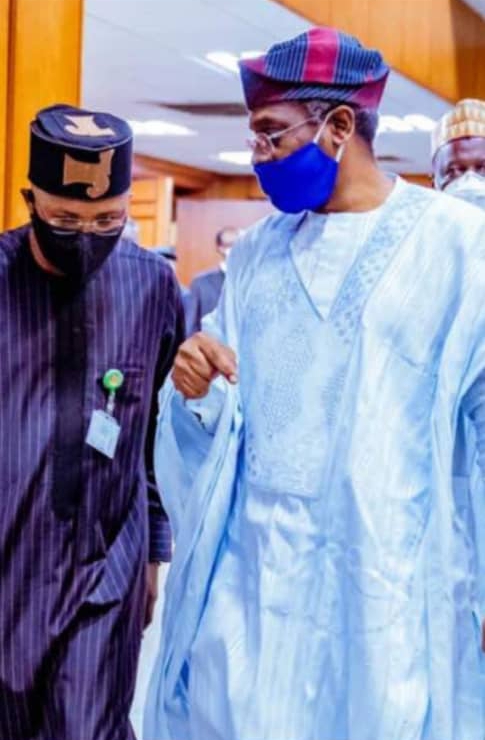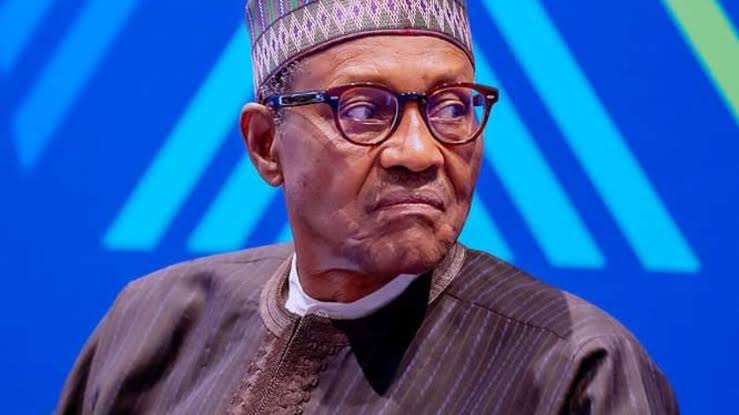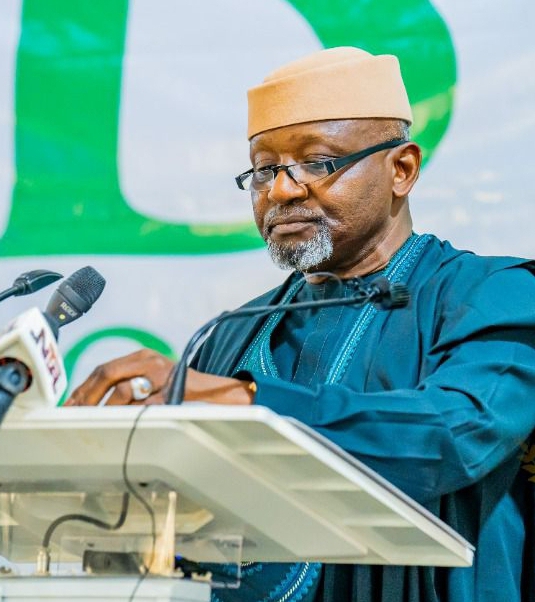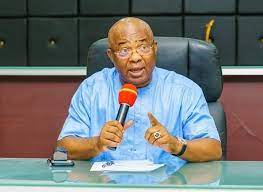Analysis
Dangote Refinery: A Tale of Two Worlds

BY EGUONO ODJEGBA
As the new normal, President Muhammadu Buhari who is billed to vacate office Monday, flew into Lagos last Sunday to commission the Dangote Refinery, perhaps, Africa’s most talked about and most speculated economic wonder of the 21st century.
The refinery which according to its management is not expected to begin production until August, nevertheless has to be commissioned by Buhari who according to his spin doctors and supporters provided the enabling environment for the completion of the project.
By August or whenever the refinery is scheduled to begin operation, chances are that the incoming president, Asiwaju Bola Ahmed Tinubu will also be on ground to perform the ceremonial lightning of its furnace; with all the avoidable expenditure on duplicated presidential visitations.
That’s how we roll in Nigeria, we not only politicize everything but indeed, we are the worst culprit on the face of the earth when it comes to process duplication and waste; but that is matter for another day.
It is no secret that for a long time already, the Dangote Refinery has eclipsed any other industrial endeavour and completely altered the regional economic analysis; it was not surprising therefore that five African leaders, including the presidents of Benin, Ghana, Chad, Niger and Togo were listed to join President Buhari to commission Africa biggest, nay, the world’s largest, single train petrochemical/fertilizer plant; with our government obviously bearing the costs.
Promoted by Africa’s richest man, Alhaji Aliko Dangote, the refinery which has the capacity to process 650,000 barrels per day (bpd) sits on 2,635 hectares of land at the sprawling Dangote Industries Free Zone in Ibeju-Lekki, Lagos.
Official statements says it is designed to refined gasoline, otherwise known as premium motor spirit (PMS) 53 million litres per day ; diesel, 34 million litres per day; kerosene, 10 million litres per day, and aviation Jet A, 2 million litres per day); with sufficient surplus for export.
Although officials claim its diesel and gasoline products conforms to Euro V specifications, the management further claim the refinery is designed to process large variety of crudes including many of the African Crudes, some of the Middle Eastern Crudes and the US Light Tight Oil.
Dangote’s petroleum refinery is expected to meet the needs of Nigerian consumers and those in neighbouring countries, with promises to prioritise exports for regional consumption; same way the Dangote Refinery is expected to import crude to complement the required quantity to operate at installed capacity in view of the suggested lack of local crude sufficiency.
Nonetheless, this development is coming at a time the world is urgently seeking alternative fuels for the purpose of achieving a cleaner environment, essentially in response to global initiative to save the ozone layer from further damage, as indeed the environments and the global ecosystem.
There are accelerated concerns and pressure being mounted by globalists advanced economies for nations and their industries, IPP and utilities to decarbonise their operations. The de-carbonization is by no means restricted to the energy sector alone but encapsulates domestic, shipping and transportation that hitherto thrived on high percentage sulfur and fossil fuels.
To drive the process, a number of international treaties, protocols and conventions have already been emplaced to which Nigeria is signatory. But that is the least of our problems, because the west does not have the moral right to muscle Africa into a cleaner fuel regime timetable when in fact they are largely responsible for the present atmospheric catastrophic poisoning including damage to the ozone layer.
Perhaps, the real issues assailing the Dangote Refinery consist of political conspiracies believed to have destroyed institutions and systems, including decades of questionable fiscal waivers and tax questions, and the last but not the least, the question of shade state equity in the refinery, through the 2021 convoluted bailout fund at a time the construction of the refinery reportedly stalled for lack of fund.
AT that point, according to grapevine, state actors supervised by President Buhari offered to assist by throwing open the public treasury, where $2.76billion was doled out in the name of equity share holding.
In Nigeria, the local media heralds such activities with the greatest professional interest, but in this particular case, the report apparently crept in rather suddenly surreptitiously, raising some eye brow. It is not clear if NNPC and other relevant state agencies have a proper record of the said equity stake, in view of the suddenness political eagerness by the presidency to get involved in the refinery.
Thus the continuous posturing by the outgoing government and state actors to obfuscate necessary facts about the Dangote Refinery not only constitute abuse of office but borders on perjury, to the extent that society have sought to know the forms and manners, and the legal instruments guarding state funds committed to the Dangote Refinery.

This is without controversy to the capacity of Alhaji Aliko Dangote as the richest man in Nigeria to set up the refinery, Nigerians should be proud of this unassuming gentleman and foremost industrialist that has done much more to create employment and grow the national economy more than all the governments put together since 1999.
Yet, it is important to address questions that agitate the mind about the Dangote Refinery, given the lavish encomiums poured on Dangote during the commissioning; especially on the conclusion that the petrochemical plant is Nigeria’s economic watershed, and which suggested rather loudly that with the Dangote Refinery fuels, Nigerians are set to enjoy the most stable, competitive economic and social lives as against the apparent monopoly the refinery holds.
Of course the federal government succeeded in deploying big media efforts to deflate and put down public concerns about the alleged lack of transparency in the NNPC hurried 20% stake in Dangote Refinery at a time work on the construction was believed to have grinded to a halt, those whose business it is to know say government is economical with the truth about the hurried equity purchase; particularly in view of the security of the shareholding.
Speculations are rife that what happened during the concession of the port industry, where state actors fraudulently influenced the transactions based on their hidden personal interests, may have been replicated in the Dangote Refinery/NNPC $2.76billion partnership.
This is especially on the backdrop of concerns that there should have been official demand for change in the name the moment the FG acquired the said 20percent stake holding; and worries that rather than have the name become Nigeria Dangote Refinery, state actors remain unconcerned about it remaining Dangote Refinery, names being critical legal issue in joint ventures.
Commenting, an industry analysts who does not want his name mentioned warned that the romance between Dangote and the nation’s elites poses some official drawback that could hurt the overall interest of the country if not clearly reviewed and properly documented.
For instance he fears that the crude import aspect of the refinery may erode on the nation’s foreign exchange reserves, and leads steadily to product control policy that may also see to the promotion of Dangote fuel monopoly at the end of the day.
“Nigerians will regret the mega monopoly to be created soon especially with the subsidy removal. Don’t forget, the local supply of crude is insufficient and Dangote Refinery has to import some to meet up. This is an aspect that will wipe away major gains of our foreign exchange earnings and not only raise the domestic pump price of fuel but create new inflationary bubbles.
“With no competition anywhere, soon government will include petroleum products on the prohibition list and push away small operators and also make the setting up of modular refineries very stringent to take off, so that Dangote can make his money.”
According to President Buhari, the Dangote Refinery will retool the economic system with the greatest possible economic benefits, even as he shied away from talking about the nation’s three refineries he and his predecessors killed through open corruption and official arrogance.
Citing a long list of deliverables that includes employment creation, enhanced trade, warehousing, transport and logistics, Buhari said the refinery “will greatly create wealth, drastically reduce poverty and secure the future of our nation”.
While the entire political tribe beginning with President Buhari convulsed in ecstatic praise singing synonymous of an impending state of eldorado, Senator Ben Murray-Bruce of the Common Sense pulpit refused to join in the obfuscation of facts as he enjoined Nigerians to brace up for the regime of gasoline (petrol) market value.
His words, “Price is going to go up, market value PMS (premium motor spirit), the minute it starts it will be in market value, so don’t think his refinery is going to make prices drop, no.
“You’re going to pay market value he is not going to subsidize you, if he doesn’t charge market value; he’s going to be broke.”
The distinguished President of Dangote Group, Aliko Dangote described the new plant as a game changer, while providing empirical data to punctuate his assertions.
But our own dramatic economic connoisseur and Governor of Central Bank of Nigeria, Godwin Emefiele, as usual embarked on his jaded sophistries to aggregate the gains of the refinery, which tended to be more political than economic.
Having failed woefully to create employment being his primary assignment, the economic popinjay found expressions in political nuances to deodorize his failure; holding up the Dangote Refinery/Ferilizer plant as the catalyst to unlocking Nigeria’s growth.
To be sure, the Dangote behemoth is a gigantic economic revolution, it is nonetheless buffeted with an equally gigantic political history and manourvers, and there is no way its story can be told in one day.
































